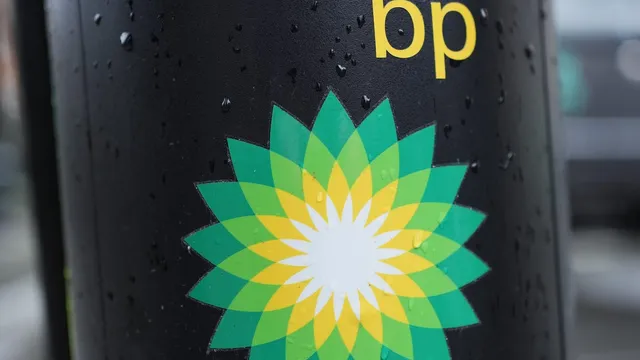
BP shifts focus from renewables to $25 billion deal in Iraq
2025-02-26 15:09- BP and the Iraqi government have signed a $25 billion deal to redevelop four oil and gasfields in Kirkuk, Iraq.
- The deal comes as BP plans to cut back on renewable energy investments and unwind its previous 2030 targets to reduce oil and gas production.
- This shift in strategy signals a significant change in BP's priorities and emphasizes the growing friction between fossil fuel interests and climate change commitments.
Express your sentiment!
Insights
In early 2023, BP reached a significant agreement with the Iraqi government to redevelop four major oil and gasfields located in the Kirkuk region, northern Iraq. This substantial deal is expected to involve BP spending approximately $25 billion throughout the duration of the project. This contract comes at a critical moment when BP is pivoting away from its previous commitments to increase renewable energy investments, diminishing its 2030 targets aimed at reducing oil and gas production by 40%. The decision aligns with a broader trend in the energy sector, where companies like Shell and Equinor have similarly reduced their investments in green technologies. The oil and gasfields in question have been underutilized due to historical challenges such as war, corruption, and ongoing sectarian tensions. Estimates suggest there are resources amounting to 20 billion barrels equivalent in oil and gas in the contract area. BP's shift in strategy emphasizes increasing fossil fuel production over previously set low-carbon deployment goals, responding to market pressures and the need for profitability. The influence of U.S. energy policies, particularly under President Donald Trump, has intensified focus on fossil fuels, affecting industry dynamics globally. BP’s stock performance has faced scrutiny; its shares have only risen slightly over the past five years compared to competitors like Shell, which experienced substantial gains. This situation has led to growing dissatisfaction among shareholders and environmental advocates, with significant criticism directed at BP for its change in direction which some label as misaligned with climate goals. Activists warn the increased focus on fossil fuels could lead to risks associated with stranded assets as the world moves toward decarbonization goals to address climate change. Under pressure to improve financial performance, BP’s management has announced job cuts to streamline operations and reduce costs, further demonstrating its pivot towards maximizing returns from oil and gas extraction over renewable practices. The ramifications of this deal in Iraq and BP's broader strategy shift raise critical questions about the future of global energy investments and their alignment with international climate commitments.
Contexts
The impact of BP's investment in Iraq's economy has been profound and multifaceted, significantly influencing various sectors and contributing to both immediate and long-term economic growth. Since BP's entry into Iraq, particularly after the signing of a key oil deal in 2009, the company has facilitated increased oil production, which is a cornerstone of the Iraqi economy. With Iraq being one of the world's leading oil producers, BP's extensive investments in infrastructure and technology have enabled the country to enhance its oil output, thereby boosting government revenues and providing jobs for thousands of Iraqis in both the oil sector and ancillary services. This influx of capital and expertise has not only revived an essential segment of the economy but has also laid the groundwork for additional foreign investments and partnerships in the nation, vital for overall economic stability and growth. Moreover, the investment has stimulated the development of local businesses and services that support BP’s operations, creating a multiplier effect in the economy. Local firms providing logistics, transportation, construction, and technical services have seen significant growth as a result of BP's presence. This development fosters a more diversified economy, mitigating the risks associated with over-reliance on oil revenues alone. Furthermore, BP’s commitment to corporate social responsibility has led to initiatives aimed at community development, education, and environmental sustainability, contributing positively to the socio-economic landscape of Iraq. Such programs not only help enhance the quality of life for local communities but also build goodwill and a positive image for BP in Iraq. Despite these benefits, it is crucial to recognize the challenges and criticisms that accompany such large-scale foreign investments. Critics argue that while BP's activities may benefit the economy in the short term, they do not adequately address broader issues such as governance, transparency, and equitable distribution of wealth. There are concerns about the potential for corruption and the risk of exacerbating existing inequalities in wealth distribution, as the primary beneficiaries of the oil boom may not necessarily be the local populations. Additionally, the environmental impact of increased oil production remains a key concern, highlighting the necessity for BP to adhere to stringent environmental standards and engage in practices that support sustainable development. Looking ahead, continued collaboration between BP, the Iraqi government, and local communities will be vital for ensuring that the benefits of oil investment translate into lasting economic growth and stability. The strategic direction of BP's investment in Iraq will also need to focus on enhancing local capabilities and integrating technology and training initiatives to build a workforce that can sustain growth beyond BP's own areas of operation. As Iraq continues to navigate post-conflict recovery and rebuild its economy, the role of foreign investments such as those from BP will be critical in shaping the future trajectory of its economic landscape.